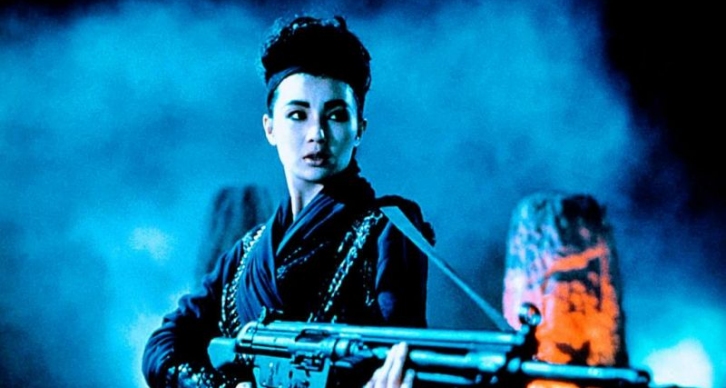★★★
“Opens brightly, peters out into sub-Indiana Jones heroics, with some awful use of CGI.”
 Yeoh’s English-language follow-up to Crouching Tiger was highly anticipated, but the end result is a disappointment. Yeoh plays Yin, the head of a family of acrobats who guard part of the key to a Sharira – a holy relic with potential for good or evil. The latter is supplied by Carl (Roxburgh), who hires Yin’s former boyfriend Eric (Chaplin) to steal the other elements needed to get the Sharira. Eric, however, switches sides, and teams up with Yin to race Carl to the prize.
Yeoh’s English-language follow-up to Crouching Tiger was highly anticipated, but the end result is a disappointment. Yeoh plays Yin, the head of a family of acrobats who guard part of the key to a Sharira – a holy relic with potential for good or evil. The latter is supplied by Carl (Roxburgh), who hires Yin’s former boyfriend Eric (Chaplin) to steal the other elements needed to get the Sharira. Eric, however, switches sides, and teams up with Yin to race Carl to the prize.
It starts well: Carl has an excellent line in sarcasm, and his army of bungling henchmen provide plenty of ways to use it. And while the action scenes use an annoying ‘drop-frame’ technique, they are at least frequent. Once Yin and Eric hit the road, however, it grows steadily less interesting, among much “without good, there can be no evil” banal chatter. Yin’s kid brother (Chang), kidnapped by Carl, also becomes irritating, and it’s clear that Pau’s talents lie in cinematography (as in CTHD), not direction.
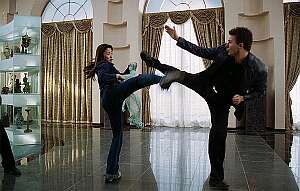 Worst of all, given a $20m budget, you’d think the climax would be more than extremely lame CGI, barely worthy of a Playstation game. Yeoh is her own best special effect, and the finale gives her little or no chance to shine. I suspect she’d have been better off taking a part in the Matrix sequels, which she turned down in order to make this mediocre action-adventure entry. Little wonder Miramax pushed the US release back to Spring 2004 – almost two years after the HK release. Do not be surprised if it quietly gets dumped to video.
Worst of all, given a $20m budget, you’d think the climax would be more than extremely lame CGI, barely worthy of a Playstation game. Yeoh is her own best special effect, and the finale gives her little or no chance to shine. I suspect she’d have been better off taking a part in the Matrix sequels, which she turned down in order to make this mediocre action-adventure entry. Little wonder Miramax pushed the US release back to Spring 2004 – almost two years after the HK release. Do not be surprised if it quietly gets dumped to video.
Dir: Peter Pau
Star: Michelle Yeoh, Ben Chaplin, Richard Roxburgh, Brandon Chang





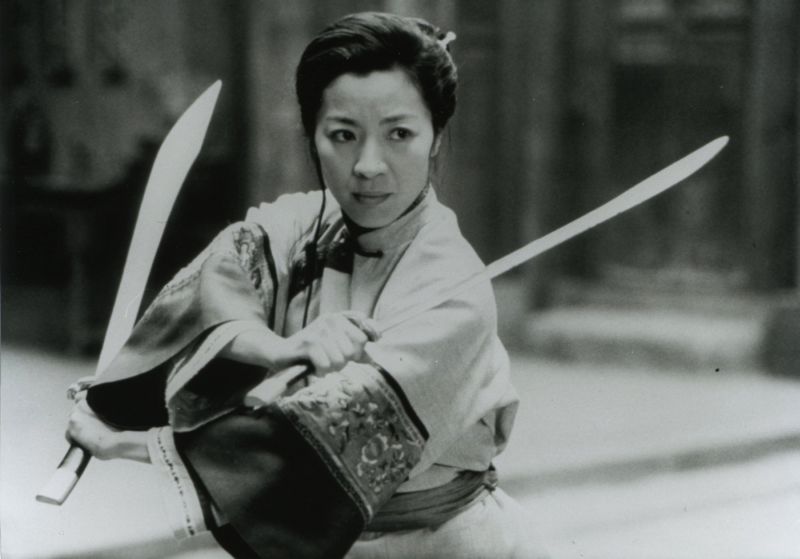
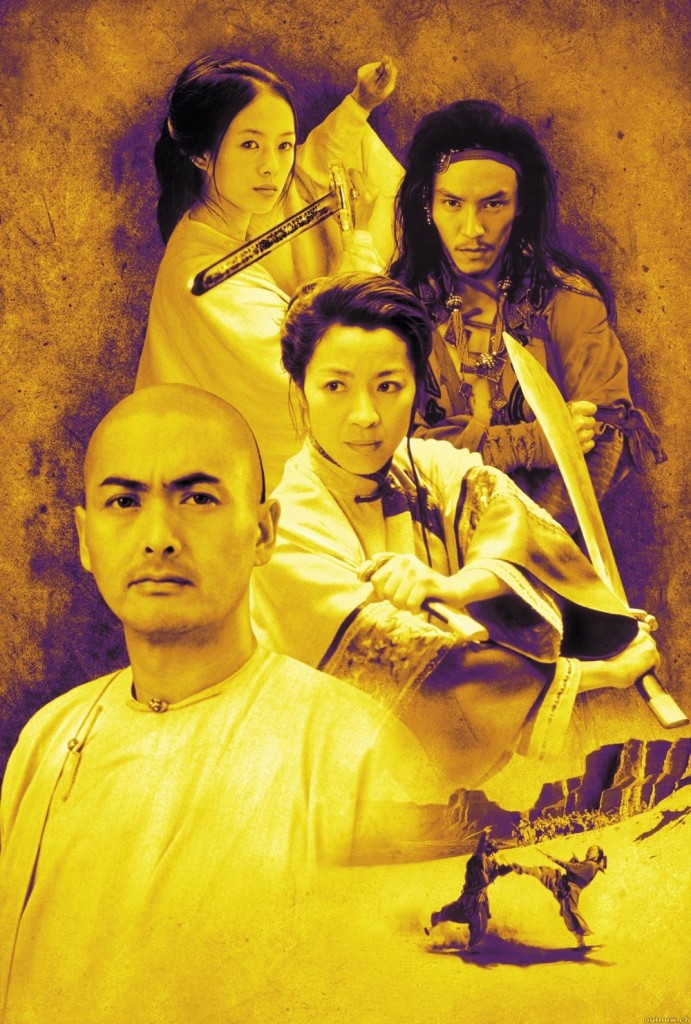
 Not many subtitled movies can claim to have inspired commercials (Jean de Florette being the only other that comes to mind), but seeing the
Not many subtitled movies can claim to have inspired commercials (Jean de Florette being the only other that comes to mind), but seeing the 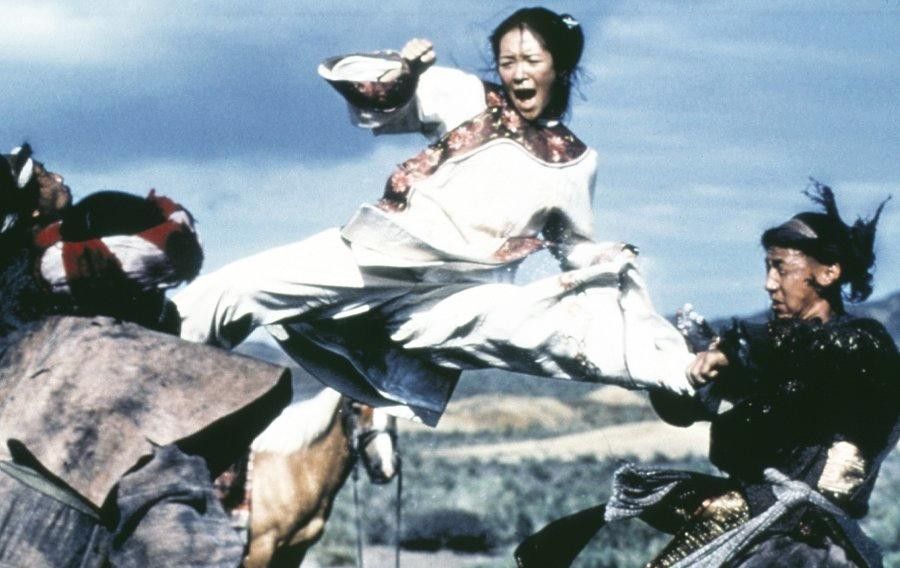
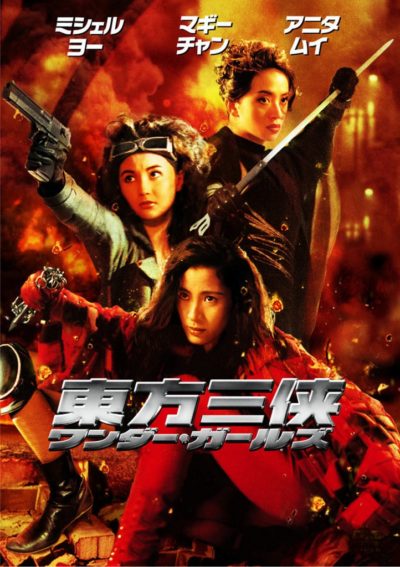 I usually start watching this in a sense of disbelief, since it’s certainly not the most immediately convincing of movies. However, there’s a point near the middle which has in quick succession an amazing action sequence and two revelations, one touching, one tragic, and I realise that I am, yet again, utterly buying into the characters, storyline and setting. Disbelief simply ceases to be an option, and by the end, I know why this is among my all-time favourites, not just in the action heroine genre, but among all cinema.
I usually start watching this in a sense of disbelief, since it’s certainly not the most immediately convincing of movies. However, there’s a point near the middle which has in quick succession an amazing action sequence and two revelations, one touching, one tragic, and I realise that I am, yet again, utterly buying into the characters, storyline and setting. Disbelief simply ceases to be an option, and by the end, I know why this is among my all-time favourites, not just in the action heroine genre, but among all cinema.